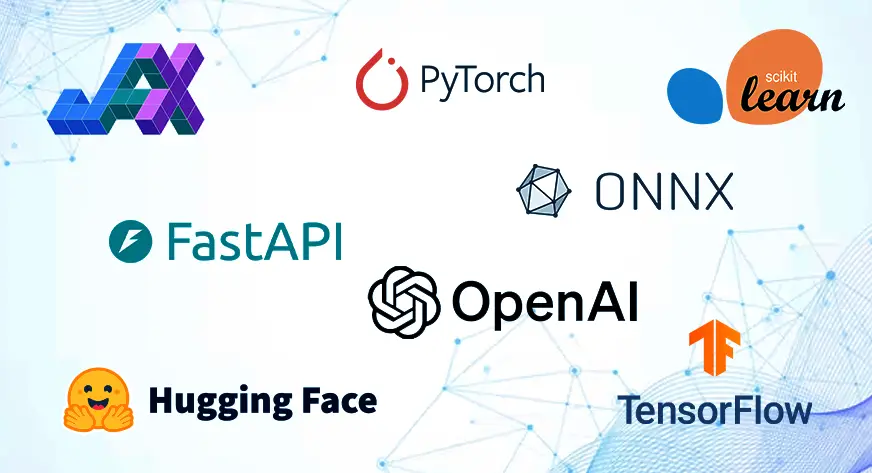Open-Source AI Models Gain Traction: Community Races Toward Enterprise-Grade Performance

Open-Source AI Surges Ahead: Transparency and Customization Fuel Innovation
The open-source artificial intelligence (AI) community is seeing explosive growth in 2025, as developers and enterprises increasingly adopt freely modifiable AI models to avoid vendor lock-in and accelerate innovation. Unlike proprietary offerings, open-source frameworks allow contributors worldwide to inspect, adapt, and improve codebases, fostering faster cycles of development and more robust solutions[8].
A New Wave of Enterprise-Ready Open-Source Tools
Enterprises, especially in highly regulated sectors such as healthcare and finance, are embracing open-source AI tools for their auditability and the ability to ensure compliance. This transparency not only builds trust but also helps organizations quickly adapt tools to meet evolving security and operational needs. Educational institutions are leveraging open-source AI to democratize learning, preparing graduates comfortable with state-of-the-art, community-driven platforms[8].
Community Innovation Rivals Commercial Giants
Recent launches highlight just how advanced community-built AI has become. Open-source models now approach, and in some cases rival, the performance of leading proprietary systems. Community-driven enhancements enable:
- Faster feature upgrades
- Tailored solutions for niche tasks
- Enhanced safety and accountability, as vulnerabilities are rapidly identified and patched In regulated industries, this means AI-powered diagnostics, fraud detection, and compliance solutions can be audited line-by-line, a critical capability as legislation tightens around AI use[8].
Business Value and Talent Transformation
Surging interest in open-source AI also drives major shifts in the job market. While entry-level roles in some sectors dipped by 15% year-over-year, postings referencing AI skills soared 400% in the past two years. CEOs surveyed by PwC say 40% of their firms need to fundamentally reinvent themselves to remain competitive, with many investing heavily in software stacks built atop open-source AI. The cost of inertia in the face of AI advancement now clearly outweighs the investment required to integrate it[8].
The Road Ahead: Implications and Expert Perspectives
Industry experts predict the open-source AI market will continue to expand, with global spending on AI infrastructure projected to reach $320 billion in 2025, up from $230 billion in 2024. The trend towards transparency, adaptability, and community-driven innovation is expected to shape not just enterprise solutions, but also the next generation of AI research and regulations. As customization and explainability become defining factors, open-source models are likely to be central to both technological progress and ethical AI governance in the years ahead[8].
How Communities View the Open-Source AI Surge
The open-source AI movement has ignited lively debate across X/Twitter and Reddit. The core discussion centers on whether community-run AI models can maintain pace with (or even surpass) commercial giants in performance, security, and industry adoption.
Key Opinion Categories:
- Open-Source Evangelists (~45%): Developers like @dev_maria and r/MachineLearning users champion transparency, auditability, and collective innovation, pointing to recent breakthroughs by open-source models nearing or matching the capabilities of proprietary AIs.
- Enterprise Skeptics (~30%): CTOs and IT pros, such as @cloudfirst_cio, express concerns about support, long-term security, and integration risk, arguing that commercial solutions still offer the reliability enterprises need.
- Academic & Educational Advocates (~15%): Professors and students on r/ArtificialIntelligence highlight the democratization of high-quality AI tools for learning and research, often referencing case studies of open-source models in classrooms.
- Cautious Regulators & Ethicists (~10%): Policy experts like @AI_policy_guru voice mixed views, emphasizing the need for robust governance and clear liability frameworks—even with open code.
Notable Figures:
- Open-source maintainers (e.g., @huggingface, @karpathy) have weighed in, reinforcing that the strongest models in 2025 are now often open sourced, not just commercial.
- PwC and Fortune 500 CTOs' survey snippets are frequently cited in career and industry posts.
Sentiment Synthesis:
Overall sentiment is strongly positive about the potential for open-source AI to advance transparency and industry innovation, though tempered by pragmatic concerns about enterprise readiness and regulatory challenges.